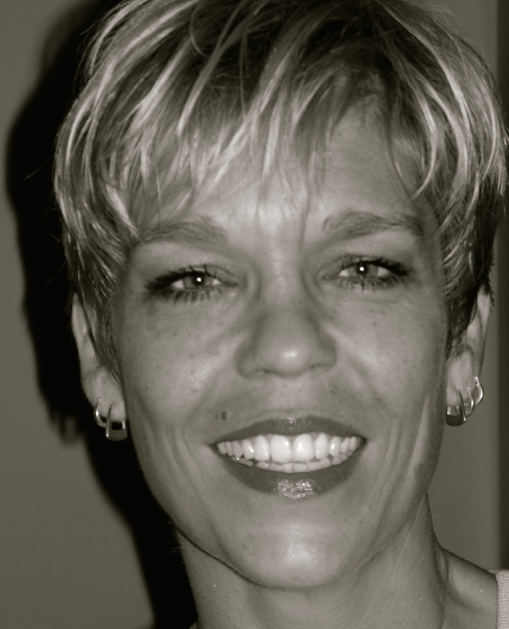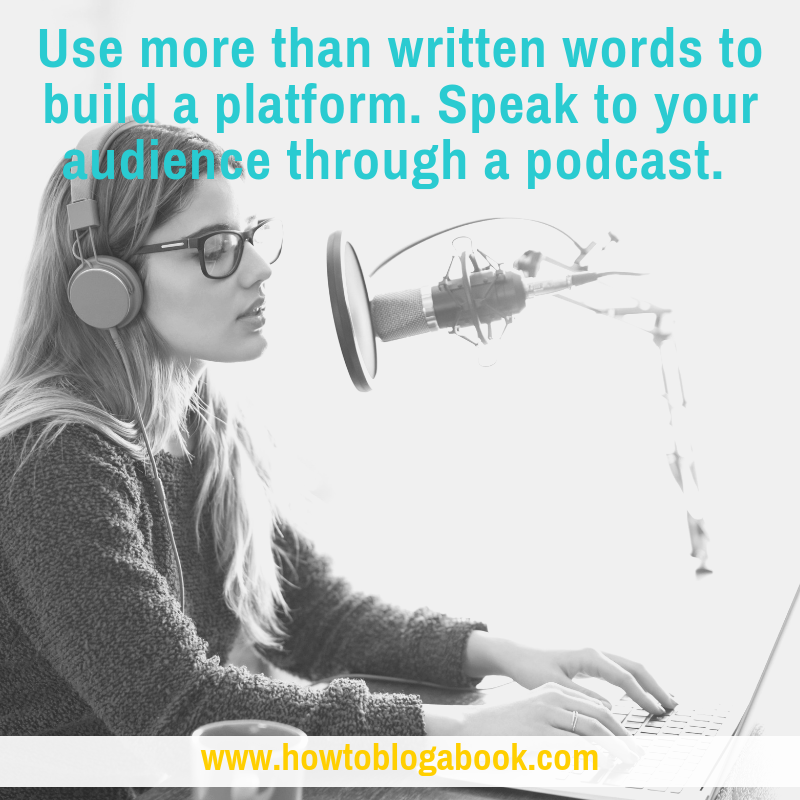I’ve been on the verge of starting a podcast several times, but I balked at the extra work and learning curve. I think that was a mistake…especially after reading this post. Jay Artale (@BirdsOAFpress), a digital nomad and full-time writer and blogger, explains why she started her podcast and why launching one of your own can help you build your blogger and author platform.
Taking the same content and repurposing it in multiple ways provides the cornerstone of content marketing. That’s why blogging a book or booking a blog is the optimal way to share your nonfiction content. But the written word isn’t the only way to deliver your knowledge and expertise to your audience. If you’ trying to build your author platform, consider using your spoken voice, too, by launching a podcast.
Unless you’ve been hiding under a rock, you can’t have failed to notice the podcasting revolution. I remember going to the 2011 BlogWorld Convention in Los Angeles to get a better understanding of blogging tools and best practices. It was the first blogging event I’d attended, and I was left with two vivid memories. I became starstruck after meeting Problogger’s Darren Rowse, and the main buzz at the show was focused on podcasting—not blogging.
I was at the beginning of my blogging journey (and at the time had a full-time corporate career), so the idea of launching a podcast felt overwhelming. You may feel the same way about starting a podcast.
Even though podcasting is now mainstream, you don’t have to worry that you’ve missed the boat. It’s never too late to launch your own author podcast. IngramSpark didn’t launch their Go Publish Yourself podcast until December 2017, and Reedsy didn’t start their Best Seller podcast until the end of 2018.
Why Your Audience Needs a Podcast
My audience is people like me. Travel bloggers and writers who want to turn their blog posts into books. When I think about what my audience needs, the most obvious approach is to think about what I need. Then I give that to them.
No matter the audience, though, there are two things they probably have in common with me:
Their eyes need a rest:
- I spend a lot of time looking at a screen each day. I’m continually writing content, surfing the web, and interacting on social media. All of this screen time can cause eye-strain, so I’ve started to rest my eyes and listen to more audiobooks and podcasts.
It’s not always convenient to read:
- There are numerous situations in which I would like to read, but it’s not safe or convenient to do so on my Kindle or phone app. When I’m driving, traveling, working out, or waiting in line, I choose to listen to audio content instead.
Why you need to launch a podcast
The increase in podcast usage is a significant factor for authors to consider, but it’s not the only reason to consider starting your own show. Here are a few more:
Podcasts are popular:
- According to Podcast Insights, 51% of the U.S. population has listened to a podcast. That’s 144 Million podcast listeners in the United States alone, and 80% of them listen to all or most of each episode and listen to seven shows per week.
We all have different learning styles:
- What’s your learning style? I’m a visual learner, but some of your readers are aural or verbal learners. Their level of understanding increases when they consume your nonfiction content using a method that matches their learning style.
It’s good public speaking practice:
- Whether you plan on adding public speaking appearances to your toolbox or launching an online course to build a business around your blog and book, podcasting is an effective training ground for vocalizing your niche topics. My content marketing plan includes the launch of an online course based on my travel guide writing series. Therefore, I’m aware that I need to practice talking about my concepts and ideas. That’s why I launched my podcast. It’s a way to road-test my audio content before compiling it into an online course.
Your messaging gets clearer:
- When I convert my written content into the spoken word, it’s an opportunity to assess my content from a different perspective. I’ve discovered that the more familiar I am with my content, the easier it is to convey my message.
Podcasts make authors more approachable:
- One of the main tasks of publishing a book or blog content involves connecting with the audience. You want to build a network of avid fans that become brand ambassadors. This can’t happen until you connect with your audience. Podcasts are an intimate way to communicate your message. You speak directly to your reader, and when your content resonates with them, you make a connection.
When you feature content across your blog, book, and podcast, it simplifies your content marketing activities. It also creates multiple opportunities to promote the same content in different formats and at different times.
When to Launch Your Podcast
Recording, editing, and publishing a podcast is straightforward, but, if you’re new to podcasting or the technology, there’s a learning curve to master.
If you’re knee-deep in the publishing phase, it’s best to wait until after you’ve published your book before you start diversifying into a podcast. The last thing you need is your broadcasting schedule to disrupt your blogging or self-publishing activities.
I waited to launch my How Travel Writers Self-Publish podcast until after I’d blogged and published my first book in my How to Write and Self-Publish a Travel Guide series. Now that the second book in the series has been published, I’m using the content I’ve already blogged as the basis for new podcast episodes.
This diversification into audio is just one more building block to help me expand my author platform. If you’re an author who’s serious about building your audience reach, what’s stopping you from launching your own podcast? Tell me in a comment below.
About the Author

Jay Artale abandoned her corporate career to become a digital nomad and full-time writer. She’s an avid blogger and a nonfiction author helping travel writers and travel bloggers achieve their self-publishing goals. Join her at Birds of a Feather Press where she shares tips, advice, and inspiration to writers with an independent spirit.


Leave a Reply